Now, AI has completely triggered a global wave of unemployment, and the layoffs at Duolingo are just the first domino to fall. Foreign media statistics show that five major global companies have laid off tens of thousands of employees due to AI. Moreover, statistics indicate that the unemployment rate for recent college graduates in the United States has reached an unusually high 5.8%!
No joke, the global unemployment wave brought by AI is truly here!
In the past, such calls were only sporadically predicted by a few individuals, but now mainstream media has fully recognized this fact: artificial intelligence will fundamentally change the global labor market.
Recently, media outlets like Forbes and TechCrunch have issued warnings.


Now, due to the impact of AI, a large number of people are already unemployed.
For example, Obama and his team are currently discussing the serious consequences of this issue.
When human jobs are taken over by AI, where should we go from here?
"At first, no one paid attention to this disaster; it was just a wildfire, a drought, an extinction of a species, a city disappearing, until this disaster became closely related to everyone."
Duolingo, and many more
Everyone knows about the situation with Duolingo.
In fact, this is not new at all.
A TechCrunch reporter once interviewed a former Duolingo employee who stated that as early as the end of 2023, the company had already laid off 10% of its staff, and another round of layoffs was expected in October 2024.
In these two major layoffs, translators were the first to go, followed by writers, all replaced by AI.
By the end of 2023, the reason for Duolingo's layoffs was that a large amount of content production and translation had already been simplified using models like GPT-4.
Below is a layoff email sent by Duolingo.
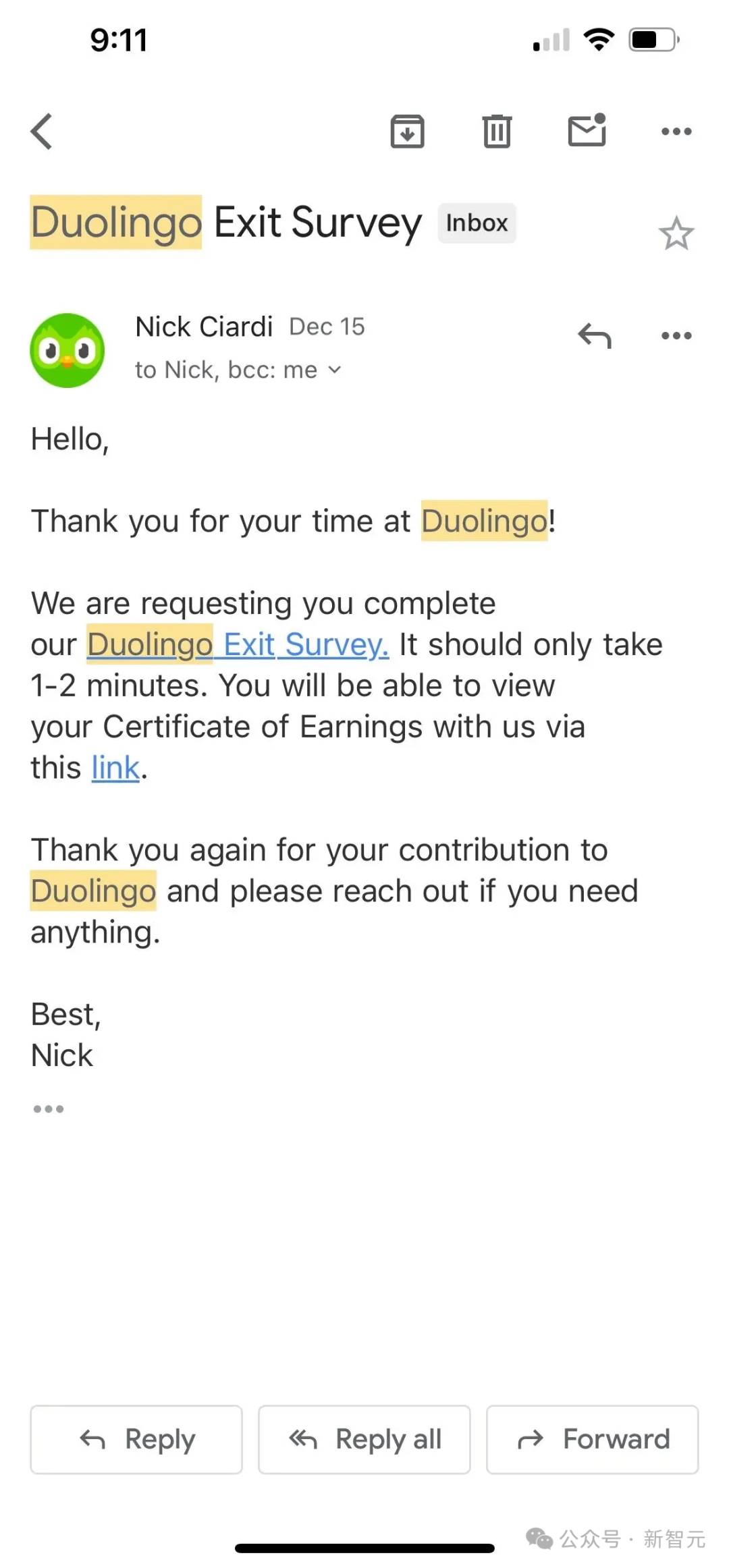
A laid-off employee revealed on Reddit that the company's reason was that AI can now replace creators, translators, and almost all similar positions.
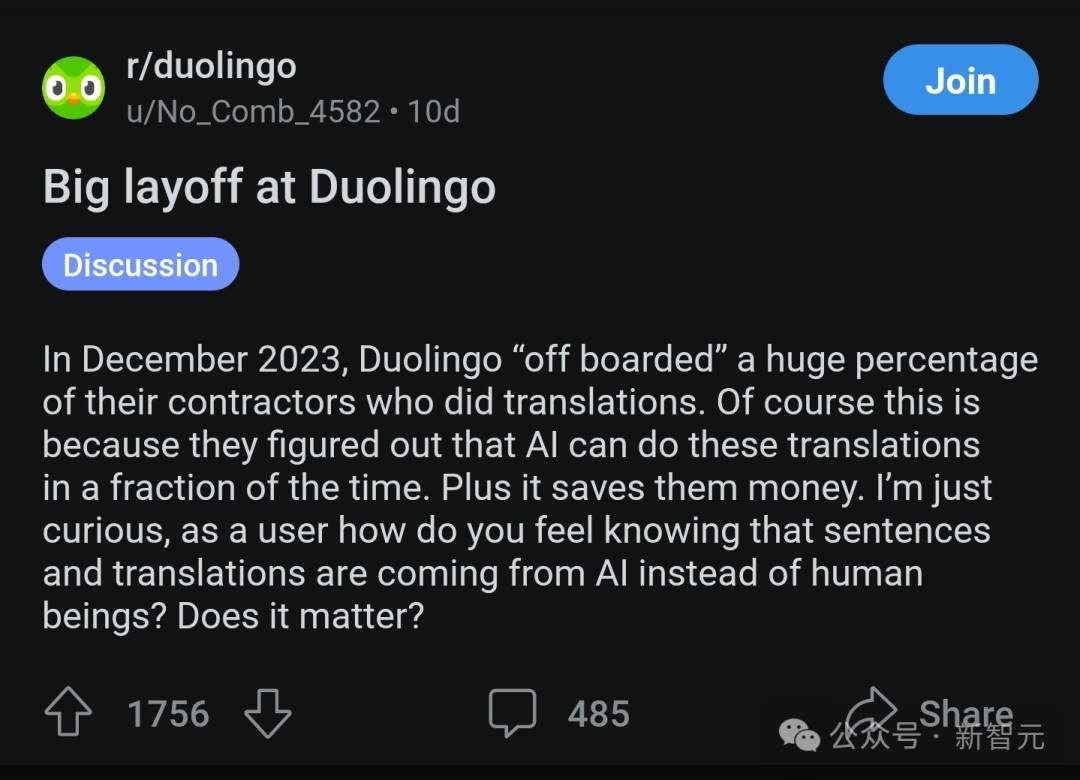

It is said that each team retained only a few people to continue working in "content editing." Their responsibility was to check the garbage content generated by AI and then click publish.
Additionally, at that time, Duolingo was also using GPT-4 to support the premium subscription version of Duolingo Max, employing AI chatbots to help users practice conversations. They also had a proprietary AI model called Birdbrain to provide personalized courses for users.
However, both the laid-off employees and Duolingo are quite dissatisfied with this situation.
For the laid-off employees, being replaced by AI is a heavy blow, and the instability of employment has caused mental distress. Due to incomplete resumes, they often find it difficult to secure stable jobs.
Moreover, most of Duolingo's employees are contract workers, allowing the company to save a significant amount of costs without having to bear benefits like insurance, paid leave, and sick leave.
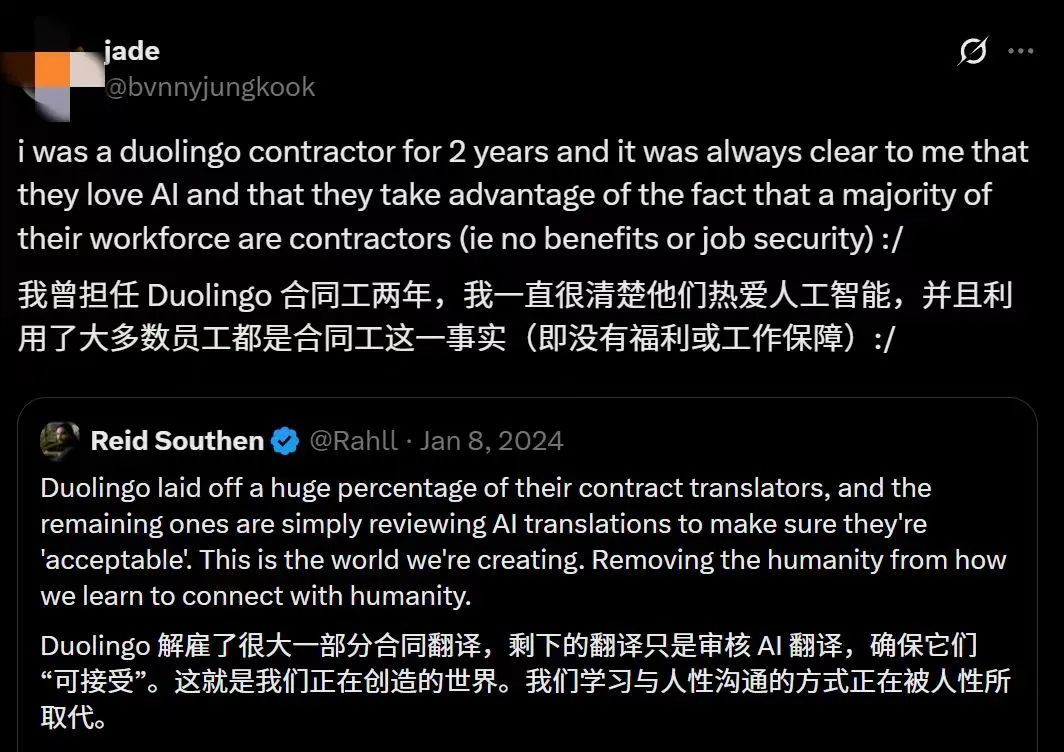
At the same time, Duolingo's users are also worried that if AI translation is used, the value of experts who have a deeper understanding of language, idioms, and cultural nuances will be diminished.
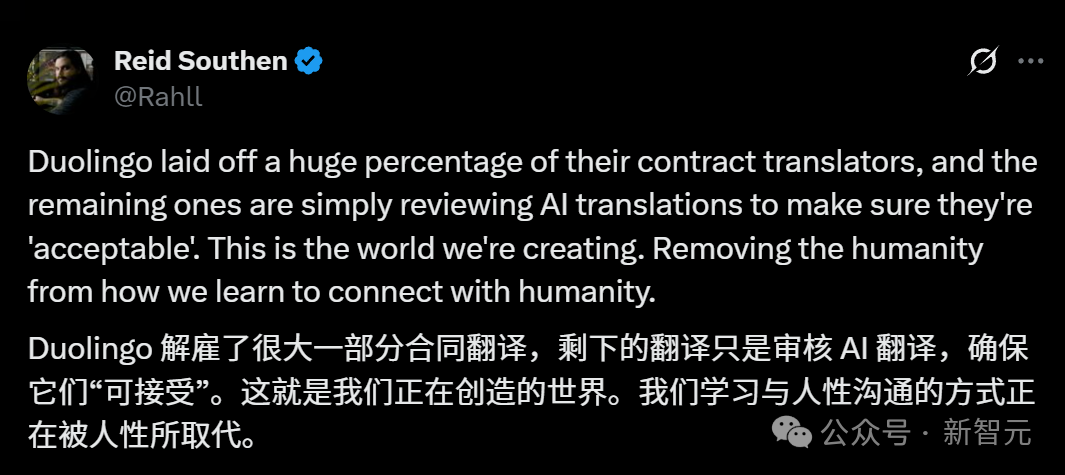
As early as the 2023 "Future of Jobs Report," the World Economic Forum predicted that AI would change 23% of jobs in the next five years.
Now, two years have passed, and this prediction has increasingly become a reality.
This crisis seems simple, but at its core, it is merely "a series of management decisions made by executives aimed at cutting labor costs and strengthening control within the company."
However, the consequences include a talent drain in the creative industry, declining incomes for freelance artists, writers, and illustrators, and major companies tending to hire fewer human employees.
According to foreign journalist Brian Merchant, the so-called AI employment crisis is not a sudden "Skynet apocalypse" disaster, but rather a situation where companies, under the banner of an AI-first strategy, lay off thousands of federal employees.
American College Graduates, Unemployed Upon Graduation
Not only that, The Atlantic has also discovered that the unemployment rate for recent college graduates in the United States is unusually high!
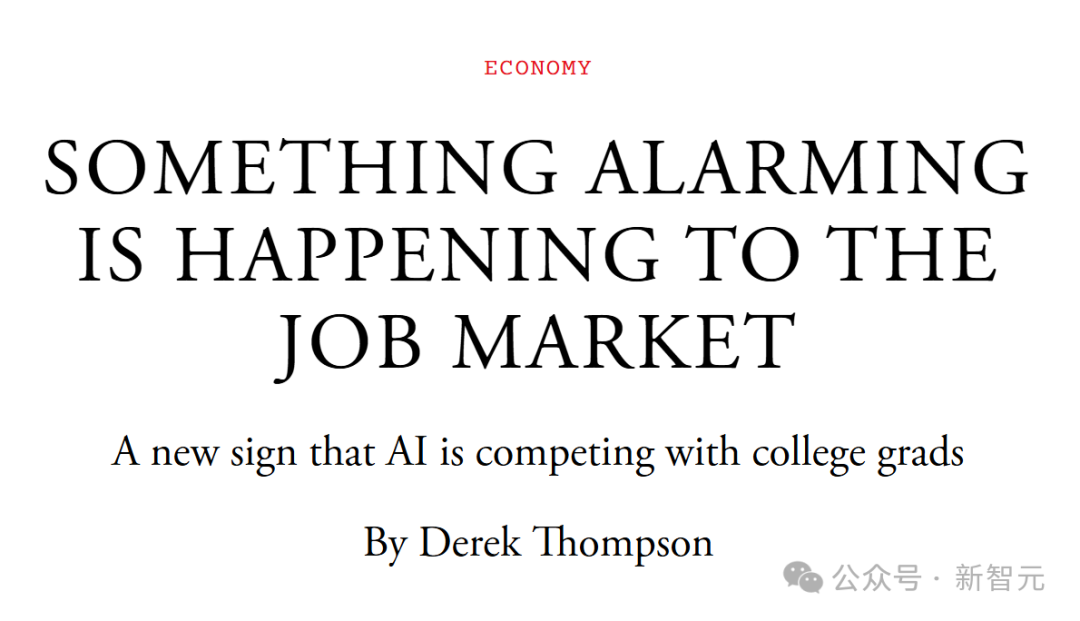
One likely explanation is that many companies are replacing entry-level white-collar jobs with AI, or that funds originally allocated for hiring new employees are now being invested in AI tools.

Just recently during the May Day holiday, this foreign media outlet found that the job market for recent college graduates in the U.S. is undergoing some strange and concerning changes.
The New York Federal Reserve reported that in recent months, the employment situation for recent college graduates has significantly worsened, with an unemployment rate as high as 5.8%!
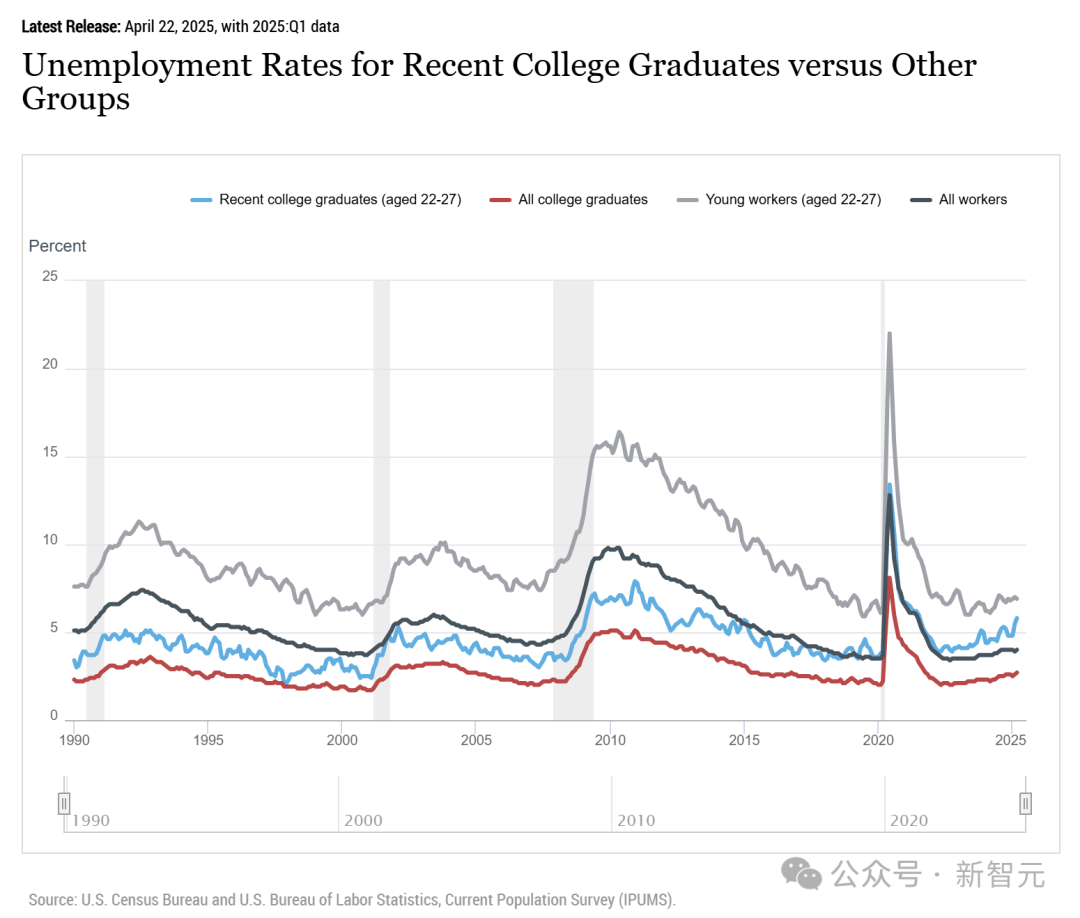
Even MBA students who have just graduated from elite programs often find it difficult to secure jobs.
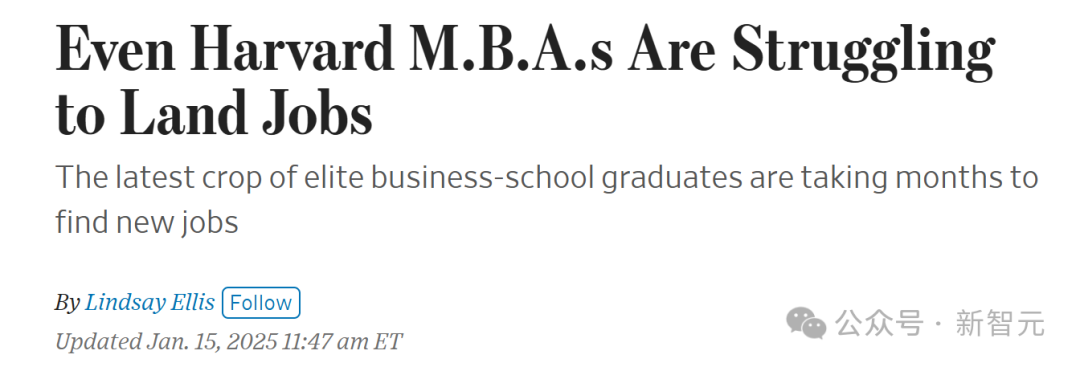
At the same time, the number of law school applicants is surging, which unsettlingly recalls how young people used further education to escape employment pressures during the financial crisis.
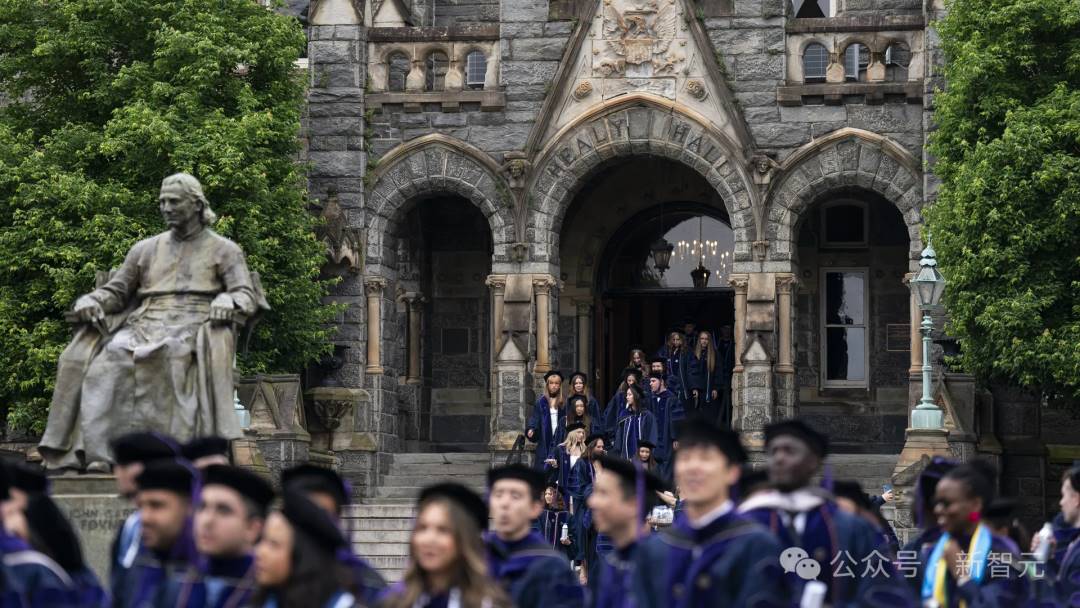
Regarding this phenomenon, The Atlantic writer Derek Thompson speculates that there may be three reasons.
The first is that the labor market for young people has not yet recovered from the impact of the pandemic, and one could even say that this major recession has lasted a long time.
Harvard economist David Deming has stated that it has become harder for young people to find jobs than it was before, and this situation has persisted for at least a decade.
The major recession not only led to mass layoffs, but many employers also froze hiring. Just when a tech boom seemed imminent, inflation returned, prompting the Federal Reserve to raise interest rates, which directly suppressed economic demand.
The white-collar sector, especially the tech industry, has been hit particularly hard. Job vacancies in software development and IT operations have significantly decreased.
The second theory points to a deeper, more structural shift: universities no longer provide the labor advantage they did 15 years ago.
According to research from the San Francisco Federal Reserve Bank, 2010 was a turning point, after which the lifetime income gap between college graduates and high school graduates stopped widening.
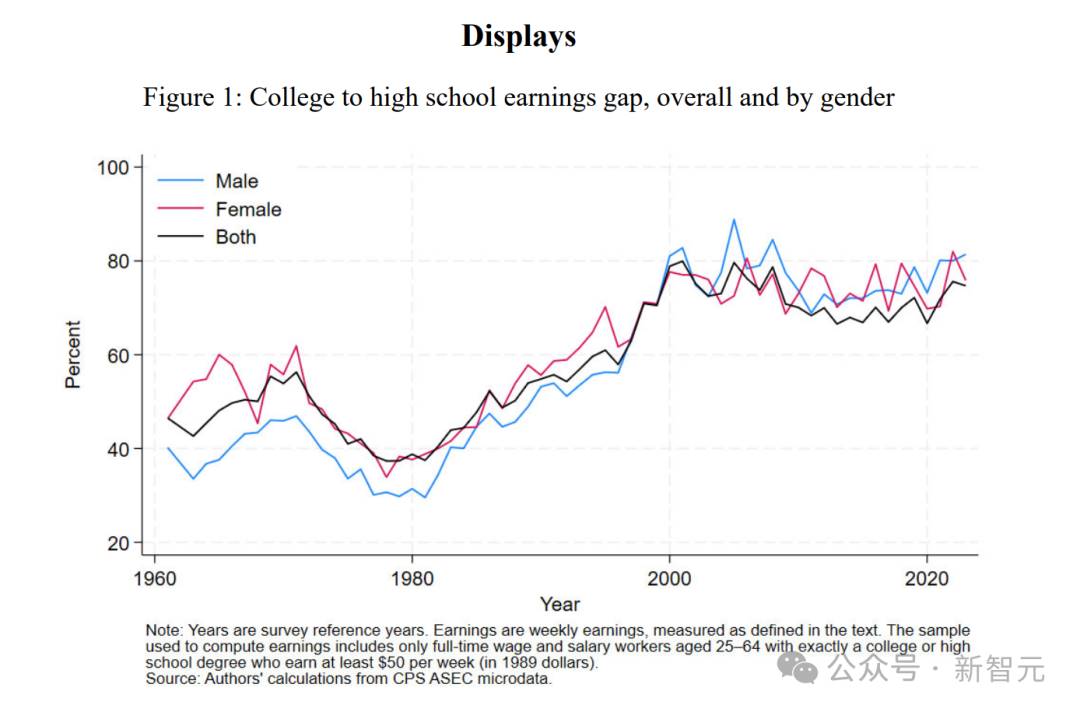
The third theory is the most frightening— the weakness of the labor market for college graduates may be an early sign of AI beginning to change the economy.
If we consider an economic indicator—the gap for recent graduates, which is the difference between the unemployment rate of young college graduates and the overall labor force unemployment rate, we find that things have changed dramatically.
Forty years ago, the unemployment rate for young college graduates was not high because they were relatively cheap labor.
However, just last month, the employment gap for college graduates reached a historic low.
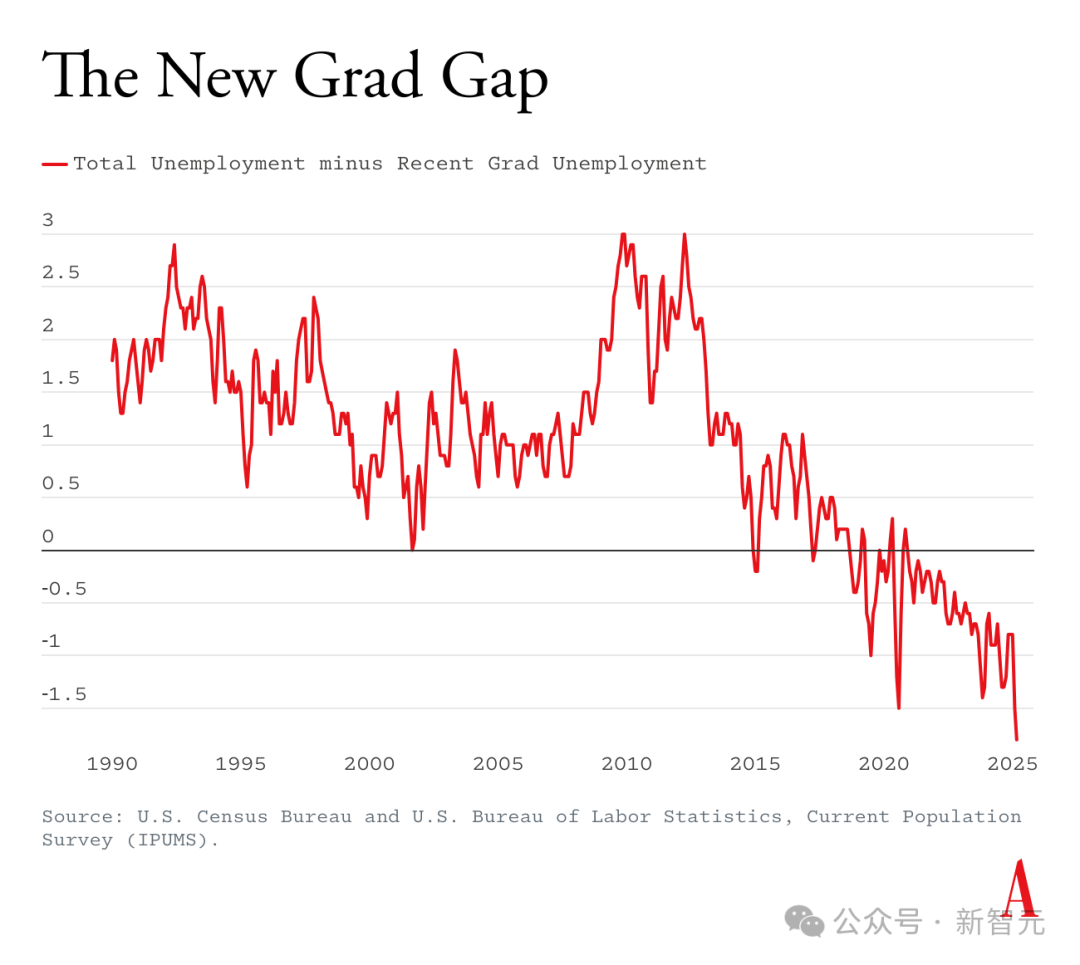
It can be said that the economic environment that American college graduates are entering today is worse than any month in the past 40 years.
Law firms and consulting companies are beginning to realize that five 22-year-olds using ChatGPT can accomplish the work of 20 recent graduates.
Moreover, even if employers do not directly replace human employees with AI, the high costs of AI infrastructure will also squeeze the share of the budget allocated for new hires.
In short, the labor market for college graduates is flashing yellow lights.
It's AI's turn to work
In summary, more and more companies are quietly asking you to leave your positions.
This time, you really are going to be replaced by AI; this is not speculation, but a fact that is happening.
Thank you for your past efforts; now it's AI's turn to work.
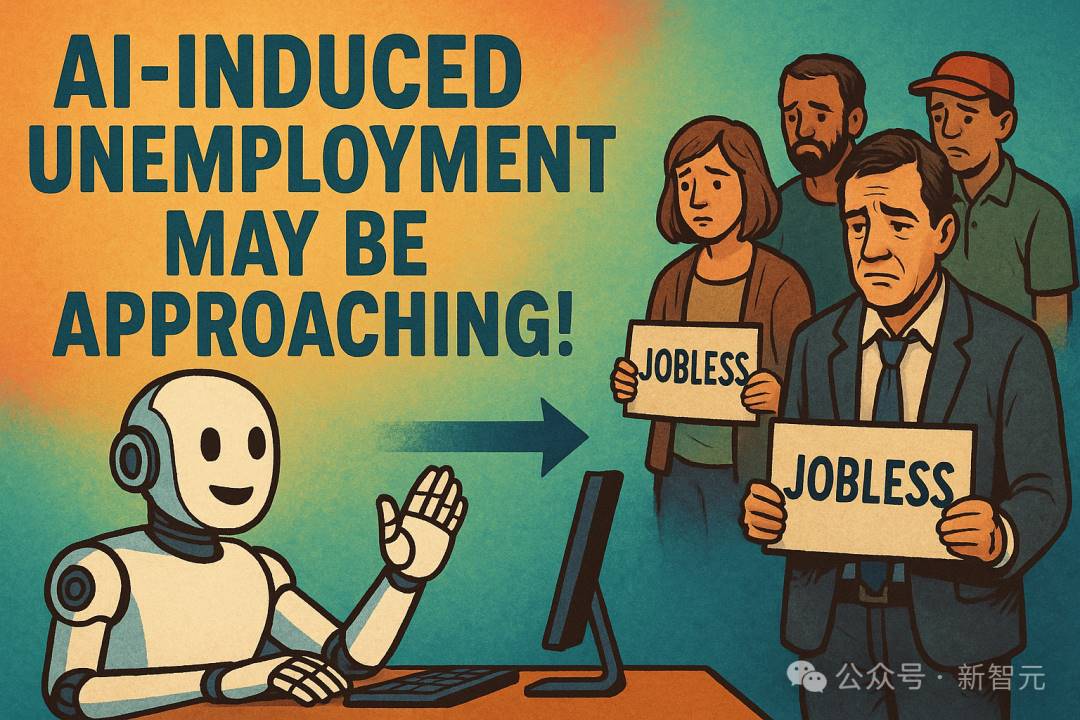
From customer service to translation, from pricing experts to tax consultants, more and more companies are starting to hire an AI that will never complain.
Don't believe it? Take a look at the current situation of the following five companies.
From 2024 to 2025, at least five well-known global companies—Klarna, UPS, Duolingo, Intuit, Cisco—have laid off tens of thousands of employees directly or indirectly due to "AI efficiency."
The reason is, "We are not replacing humans with AI; we are just enabling humans to use AI to improve efficiency."
Sounds reasonable, until you realize that human jobs have just vanished!

Klarna
Klarna, a leading buy-now-pay-later fintech company, announced layoffs of over 1,000 employees in 2024, accounting for about 10% of its global workforce.
At the time, this news immediately topped the headlines of Forbes.
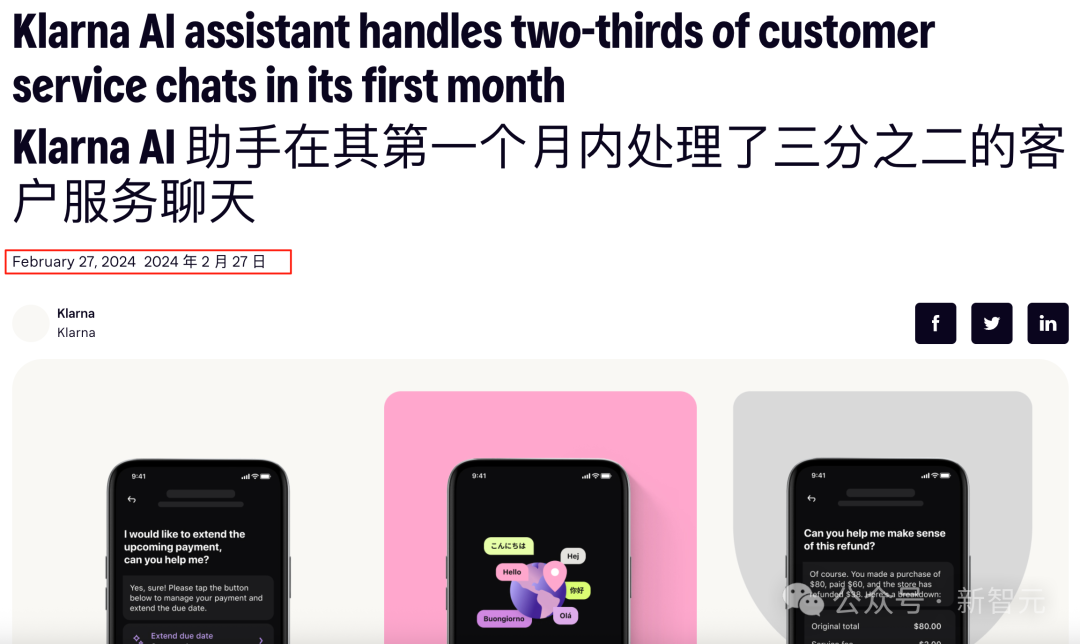
The company has heavily invested in artificial intelligence to handle customer service inquiries, process transactions, and optimize its operations.
Klarna has developed an AI assistant that is equivalent to the workload of 700 full-time employees.
Klarna's CEO publicly discussed how AI-driven chatbots and automated systems perform tasks that were once managed by human agents, such as answering customer queries and processing refunds.
By integrating generative AI, Klarna aims to reduce operational costs while scaling its services, with reports indicating that AI now handles a significant portion of its customer interactions.
UPS
At the beginning of 2025, United Parcel Service (UPS) announced plans to lay off 20,000 employees, marking one of the largest layoffs in UPS's 116-year history.
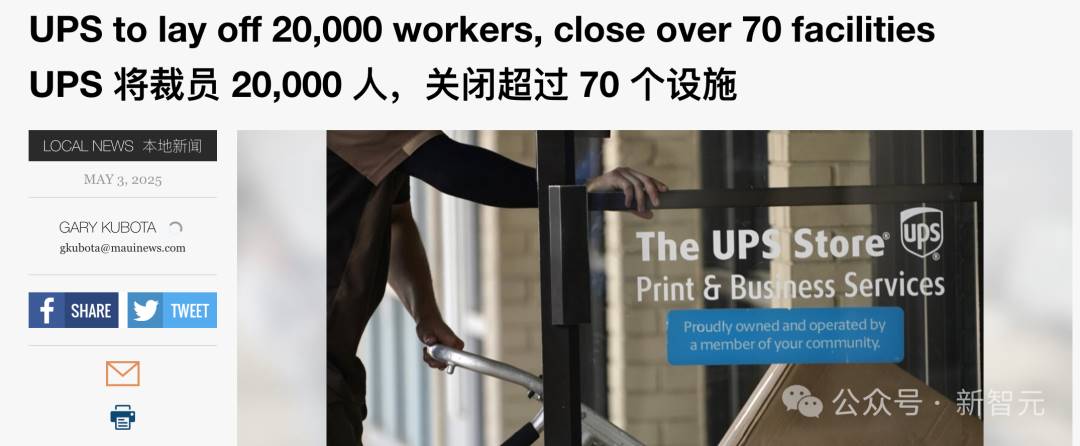
UPS CEO Carol Tomé candidly stated that the layoffs were primarily due to the implementation of AI and machine learning technologies.
Tasks that previously required human pricing experts to write sales proposals are now handled by AI, which is more efficient and cost-effective.
Although UPS still claims that "AI is not replacing humans," it is clear to everyone that the company is beginning to use AI to optimize logistics routes and handle customer communications, naturally reducing the need for so many employees.
In simple terms, this move is about the company wanting to save money, and AI has become the most convenient tool for cost-cutting.
Duolingo
Duolingo announced this week plans to replace contract workers with AI and become an "AI-first company," a move that seems to indicate that the employment crisis caused by AI "has arrived."
This news was publicly shared by Duolingo's Chief Engineering Officer on LinkedIn.
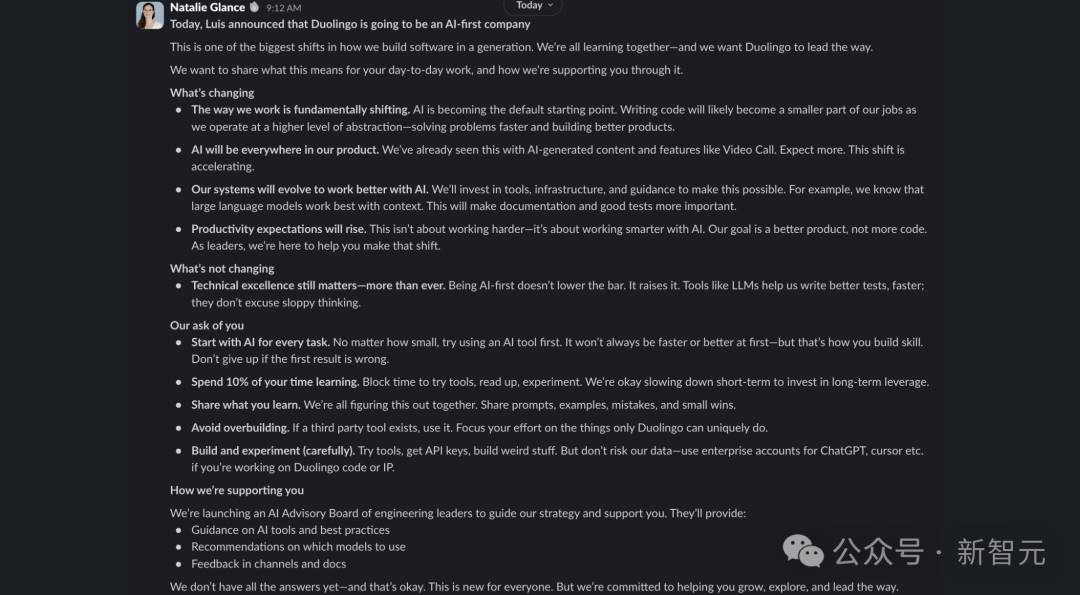
In an internal letter shared on LinkedIn, the CEO painted a picture of the future: content production, employee performance evaluations, and even hiring decisions will all rely on AI.
As a result, Duolingo took the lead in cutting 10% of its contract translators, stating that AI is now capable of performing their jobs, such as automatically translating course materials and covering over 100 languages.
While the company emphasized, "We did not lay off full-time employees!"—the direction is already clear: AI can also handle translation tasks.
Intuit
Intuit, a financial software company based in California, USA, primarily develops software related to finance and tax returns.
In 2024, the company laid off about 1,800 employees, but the money saved was not used for bonuses; it was all invested in AI.
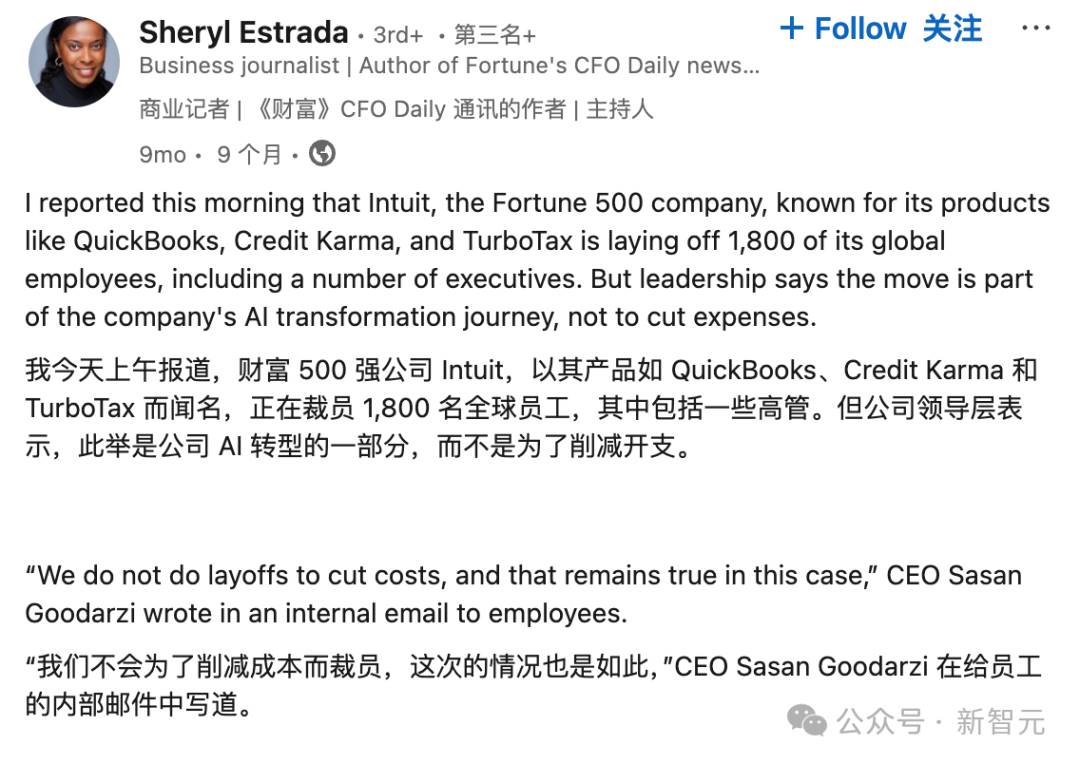
Artificial intelligence is a key component of its future strategy, especially in automating customer service, data analysis, and tax preparation processes.
Company executives are very candid: the focus for the future is artificial intelligence. Tasks that previously required a large number of employees can now be completed with a single click by AI.
Cisco
Tech giant Cisco has also joined the "AI-first" movement—previously announcing a 7% layoff, which is about 5,600 employees.
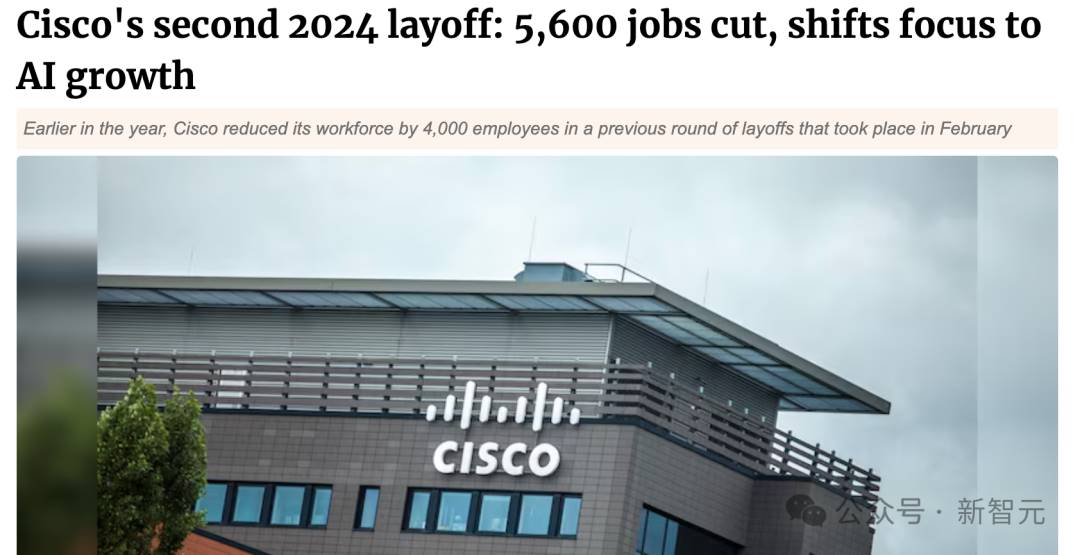
The company has been integrating artificial intelligence into its network solutions, such as predictive analytics for network management and automated customer support systems.
On the surface, this appears to be a strategic adjustment by the company, but in reality, many tasks that previously required human involvement can now be handled by AI. Cisco's actions are merely a reflection of a broader trend in the tech industry: replacing human labor with AI to improve efficiency and cut costs has become an industry norm.
Will companies that replace employees with AI succeed or fail?
As early as January 2024, Stanford University professor Erik Brynjolfsson stated that savvy companies would not use artificial intelligence to replace workers or jobs.
He said that AI should be used alongside humans, as they each have different strengths; AI should "supplement" human labor rather than replace it.
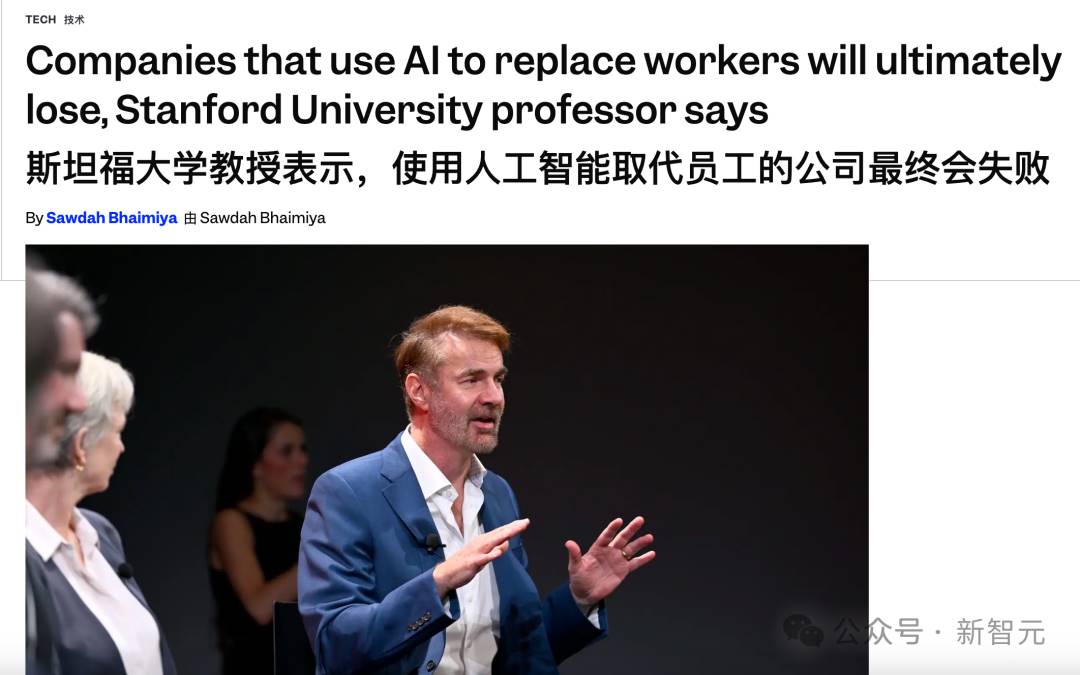
However, times have changed, and the capabilities of AI have advanced to a new level.
By early 2025, several globally renowned companies began to lay off employees en masse—there was only one reason: AI has become more efficient and cheaper.
Klarna replaced 700 employees with AI customer service; UPS laid off thousands of backend positions and shifted to automated processes; Duolingo significantly reduced its content team and turned to AI-generated question banks.
These companies did not choose "human-machine collaboration" but decisively bet on "AI-first."
When generative AI first emerged, it was seen as a good partner for humans.
However, as AI has developed to this point, it seems that AI is no longer a partner for humans but has become a competitor, even a replacer.
These companies are demonstrating through their actions that under the business logic of efficiency and cost-cutting, AI is not a "supplementary tool," but rather the "optimal solution!"
This is not just a technological revolution; it is a seismic shift in the workplace.
In the past, people fantasized that AI could help workers escape tedious tasks and focus on creativity.
The reality is—the more repetitive the work, the easier it is to be eliminated by AI; the more procedural the position, the faster it is consumed by algorithms.
Society may be standing at a critical point:
From AI assisting humans to humans needing to learn to cooperate with AI;
From optimizing positions to eliminating positions;
From enhancing productivity to reshaping production relationships.
And this transformation has already quietly begun without waiting for everyone to be ready.
免责声明:本文章仅代表作者个人观点,不代表本平台的立场和观点。本文章仅供信息分享,不构成对任何人的任何投资建议。用户与作者之间的任何争议,与本平台无关。如网页中刊载的文章或图片涉及侵权,请提供相关的权利证明和身份证明发送邮件到support@aicoin.com,本平台相关工作人员将会进行核查。




